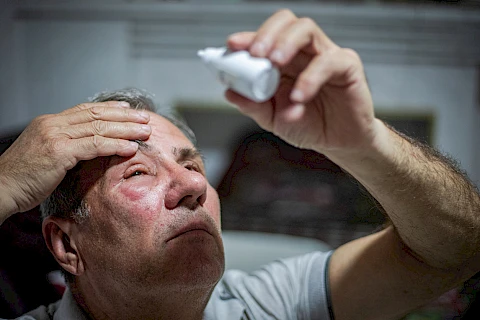
Eye infections in seniors can pose a serious threat to their vision. Understanding why these infections are more dangerous for older adults can help us stay vigilant and proactive in protecting their eyesight. In this guide, we will explore why eye infections are especially risky for seniors and how we can help prevent them.
What Are Eye Infections?
Eye infections occur when harmful microorganisms invade the eye. Common types include conjunctivitis (pink eye), keratitis, and blepharitis. Symptoms of eye infections can be more subtle in seniors. They may include redness, swelling, pain or discomfort, blurry vision, and sensitivity to light.
Weakened Immune System
Aging affects our immune system, making us more susceptible to infections. Seniors often have a weaker immune response, which makes it easier for infections to take hold, reduces the body's ability to fight off infections, and prolongs the time needed for recovery. When a senior's immune system is compromised, even minor infections can become serious and potentially lead to greater health issues.
Complications With Existing Eye Conditions
Many seniors already deal with age-related eye conditions such as cataracts, glaucoma, and macular degeneration. Eye infections in seniors can worsen pre-existing conditions, increase the risk of permanent vision loss, and complicate treatment for ongoing eye issues. For example, an eye infection can aggravate glaucoma, increasing intraocular pressure and potentially causing more damage to the optic nerve.
Delayed Healing and Recovery
Several factors contribute to slower healing in seniors, including reduced cellular regeneration, pre-existing health conditions like diabetes, and poor blood circulation. These factors mean that seniors are at higher risk for prolonged infections, which can lead to more severe complications if not treated promptly. Timely medical intervention prevents escalation.
Preventative Measures
Prevention is key when it comes to eye infections in seniors. Here are some tips to keep their eyes healthy:
- Practice good hygiene: Seniors should wash their hands frequently and avoid touching their eyes. This keeps allergens and bacteria out of the eyes.
- Use protective eyewear: Sunglasses and safety glasses can help protect seniors' eyes from irritants.
- Avoid sharing personal items: Do not share items such as towels and eye drops to avoid transferring bacteria.
- Maintain a clean environment: Keep seniors' living areas free from dust and allergens.
Regular eye check-ups are also important to keep seniors' eyes healthy. They help in the early detection and treatment of potential issues. Caregivers can monitor any changes in vision or eye appearance in seniors to catch problems early and contact a doctor immediately if they suspect an eye infection in their loved ones.
Let Us Help Seniors Maintain Their Eye Health
Eye infections are more dangerous for seniors due to weakened immune systems, existing eye conditions, and slower healing times. Being vigilant about eye health through good hygiene, regular check-ups, and prompt medical attention can help prevent serious complications.
If you or a loved one needs assistance with daily tasks, contact us at Senior Helpers Stafford for professional and compassionate caregiving services in Fredericksburg, Stafford, Locust Grove, Spotsylvania, and Bealeton. Taking preventative steps today can protect seniors' vision and maintain their quality of life.